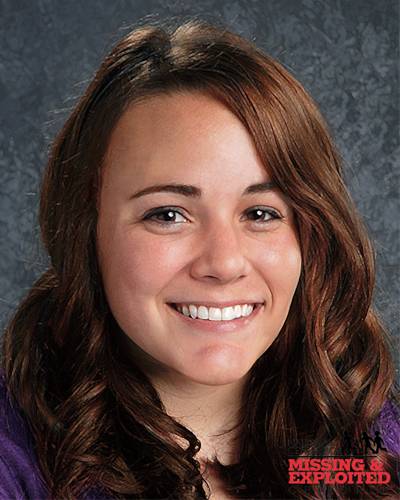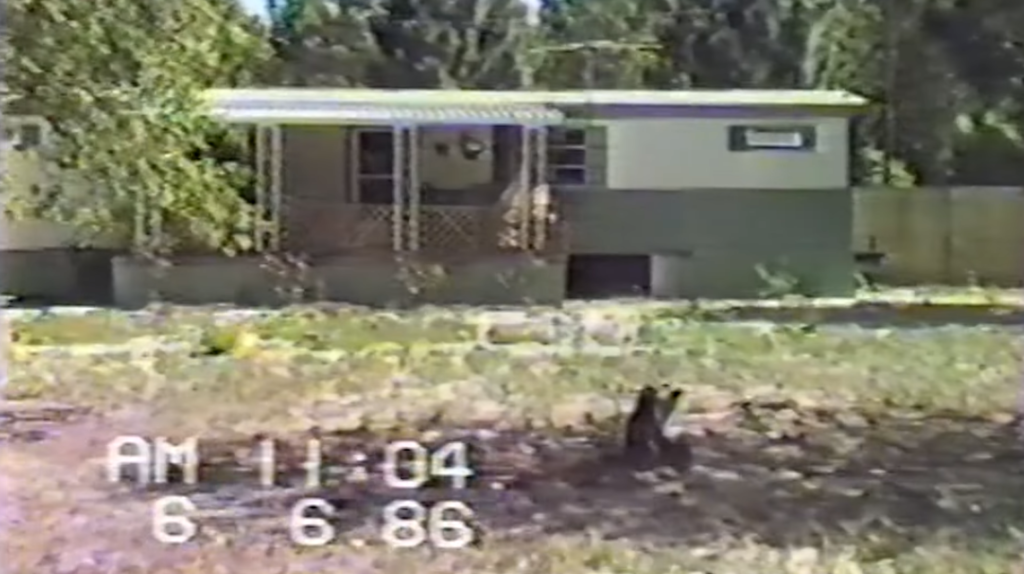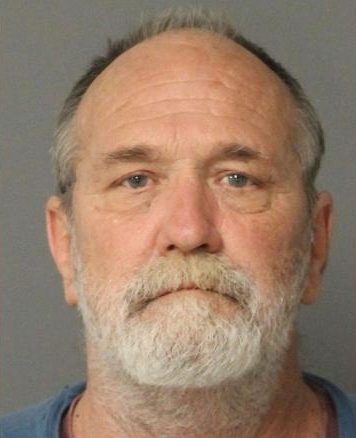In 1986, four-year-old Jessica Gutierrez disappeared from her bed in the middle of the night. Investigators know what happened, but can they prove it?
Episode Media




Episode Sources
- Jessica Suzanne Gutierrez – The Charley Project
- Jessica Gutierrez | Unsolved Mysteries Wiki
- The Abduction of Jessica Gutierrez – Trace Evidence #97
- 4-year-old missing from Lexington home
- Metts questions abduction suspect
- Mother wants fiber evidence used to find child’s abductor
- Investigators enlist media in missing girl search
- Missing girl’s mother questions conversation with Sheriff Metts
- Mother remains frustrated over daughter’s kidnapping
- Community searches for evidence in 34-year-old cold case
- Case of missing Lexington girl remains open 35 years later
- Lexington County Sheriff’s Department – Jessica is Still Missing
- FBI joins 35 year long search for missing Lexington County girl
- Arrest made in killing of Jessica Gutierrez of Lexington
- Jessica Gutierrez: NC man arrested and charged for 1986 kidnapping and murder of 4-year-old SC girl
- A 4-year-old vanished from her South Carolina home in 1986. Her alleged killer was just found.
- Neighbor of Jessica Gutierrez recalls first finding out about disappearance
- Mother of Lexington kidnapping victim faces NC suspect in court
Episode Transcript
Welcome back to Bite-Sized Crime. This week I’m bringing you a case from my hometown – one that went unsolved for nearly four decades but was recently brought back into the national spotlight. This case does involve a child abduction as well as other sensitive topics, so listener discretion is advised.
Jessica Suzanne Gutierrez was born on December 3, 1981. The youngest of four children, Jessica – known as Jessie to her family – was a happy, energetic child with big brown eyes and a bright smile. The family lived in a small mobile home just outside the rural town of Red Bank, South Carolina, in the center of Lexington County.
In 1983, Jessica’s parents divorced. Debra Gutierrez retained full custody of the children; David Gutierrez moved to Mexico, traveling back and forth to California on a green card.
After the divorce, Debra worked hard to keep her family together. Her job at the United States Postal Service helped put food on the table, but raising four young children alone was tough.
In June of 1986, Debra had been dating a man who she described as possessive and controlling. His use of alcohol and his increasingly problematic behavior finally got to be too much for Debra, and she kicked him out of the house. She hoped it would be the end of that dark period of her life; she never suspected that things would get much worse.
Thursday, June 5th, was a typical early-summer day in South Carolina. The weather was nice, with clouds in the sky and temperatures in the mid-80s. Debra and the kids spent the day outside working and playing in the yard. For dinner, Debra made bacon, lettuce, and tomato sandwiches, and then she painted Jessica’s nails before putting the kids to bed.
As she often did, Jessica asked if she could sleep in her mother’s bed, and Debra let her. But halfway through the night, Jessica’s older brother woke Debra up, complaining of an earache and saying that he was having trouble sleeping. Debra decided to let him sleep in her bed, so around 11:30pm, Debra carried Jessica to the bedroom down the hall, placing the little girl in the double bed next to her sister Becky. She then went back to her own room and fell asleep, until she was awakened the next morning around 9am.
When Debra came out of her room, she quickly noticed that something was wrong. The front door was open and the family dog was wandering around the house. A set of curtains had fallen off a window at the back of the house, and it appeared that the screen had been pulled out.
Debra immediately went to check on the children. In the girls’ room, she found six-year-old Becky and 8-year-old Kim still in their beds, but no Jessie. When she asked the girls where their sister was, Becky said, “She’s gone. The man with the magic hat and the beard took her.”
Fighting down her rising panic, Debra began searching the room, hoping that Jessica was just playing hide-and-seek. But she wasn’t under the bed or in the closet, places a typical four-year-old would hide. Debra ran outside, calling out Jessie’s name. She searched under the house and around the yard.
Debra was now frantic. She rushed back inside, grabbing Becky and demanding she tell her where Jessie was. But Becky kept saying the same thing – the man with the magic hat and beard took her. Debra later recounted the moment, saying that she screamed at Becky, “Do you realize how crazy that is? Why didn’t you call for me? Why didn’t you scream?”
But Becky had been paralyzed by fear, hiding under the covers, hoping it was just a nightmare. And because she was an exhausted little girl awakened in the middle of the night, she fell back to sleep before she could even think about calling for her mother.
Debra realized that Jessica was truly gone, not just hiding or playing a game. She dialed 911 and reported her daughter missing.
Officers from the Lexington County Sheriff’s Department responded to the scene around 11am and began searching the property. There didn’t appear to be anything missing from the home, and no obvious signs of a struggle other than some papers scattered on the bedroom floor. It seemed as though someone had entered through the rear window, picked Jessica up out of her bed without waking her, then left through the front door, leaving it open behind them.
Search teams headed out into the woods, checking ditches and abandoned buildings. Today, the Red Bank area is still fairly rural, but back in 1986, it was even more so. There were acres and acres of woods to search, with multiple creeks and small bodies of water scattered throughout. The sheriff’s department sent a plane to fly over the area, hoping for any sign of the little girl.
Debra was taken into the sheriff’s department for questioning, where she said she was grilled over the events of the previous 24 hours. She insisted that she had no idea what had happened to her daughter, but she had a pretty good idea of who did.
Debra called her ex-boyfriend and demanded to know where Jessica was. Debra was sure that he was involved somehow. After all, she had kicked him out just days before, and he was a controlling, manipulative man. But he seemed surprised by her accusation, saying, “I don’t know where she is. What do you mean, is she missing or something?”
By Saturday, June 7th, the FBI and the South Carolina Law Enforcement Division had joined the search. Bulletins were sent out nationwide, but this was a full ten years before the Amber Alert system was created and well before the internet age, and interdepartmental communication could be slow and cumbersome.
The sheriff’s department placed a wire tap on the Gutierrez home, monitoring all incoming and outgoing phone calls in case someone called with ransom demands. Captain Bob Ford told reporters, “We’re going under the premise that she was taken from the mobile home. We don’t believe she simply wandered off.”
As the search for Jessica continued, detectives started looking at possible suspects. Naturally, they followed up with Debra’s ex-boyfriend. But even though Debra firmly believed he was involved, investigators couldn’t find any evidence tying him to Jessica’s disappearance.
The next logical suspect was Jessica’s father, David Gutierrez. But he had a rock solid alibi – he was living in California and was literally on the other side of the country when Jessica disappeared.
After weeks of investigation, detectives only had one physical clue to go on – a vital piece of evidence found in the home. A single fresh fingerprint had been lifted off the open window at the back of the house, where investigators believed the intruder entered on the night of June 5th. The fingerprint was submitted to the FBI, but there were no matches found.
In September of 1986, three months after Jessica disappeared, Lexington County Sheriff James Metts announced that they had a suspect, but they didn’t have enough evidence to charge them yet. “We do have a prime suspect in this case. We have recovered information that is helpful to us. With persistence, we’ll be able to make an arrest, but first we need more evidence. We have narrowed the case down. We feel we know what has happened in the case.” He told reporters that the suspect had taken a polygraph exam and had failed. But since polygraphs aren’t admissible in court, it wasn’t enough to make an arrest. Sheriff Metts could not convince the Lexington County Solicitor – South Carolina’s version of a district attorney – to charge the suspect with such little evidence.
After that, there were few glimmers of hope in the years that followed. In 1987, police in Kansas contacted the Lexington County Sheriff’s Department, saying they had a little girl who matched Jessica’s description. Debra flew out to Kansas, hoping that she would finally see her daughter again. But it wasn’t Jessica. “I heard her voice before I even got to the two-way mirror to look at her, and I said, ‘That’s not her.’” Heartbroken, Debra returned to South Carolina to continue her search for Jessie.
Debra was determined to not let Jessica’s case go cold. She and Sheriff Metts didn’t see eye to eye on the case, and often argued about the investigation, so Debra took it upon herself to conduct her own investigation and get Jessica’s case back into the public eye. In June of 1989, Debra told The State newspaper that she had found fibers in an abandoned car that were linked to her daughter. The car was connected to a family friend who was currently serving time in North Carolina on a rape conviction.
This revelation was a bombshell. Two years prior, Debra had received a letter from an inmate in North Carolina claiming that his cellmate had confessed to abducting and murdering a four-year-old child in 1986. The cellmate was 27-year-old Thomas McDowell, a registered sex offender who had been living in Lexington County at the time of Jessica’s disappearance and was an aquaintance of the Gutierrez family. McDowell claimed that he had killed the child because she recognized him, then he dumped her body in a landfill. McDowell also said that at the time of the abduction, he had a beard and was wearing a tall cowboy hat.
McDowell’s cellmate had also contacted the police with this information, and investigators questioned McDowell at length. McDowell agreed to tell detectives everything about the crime… in exchange for immunity. Of course, that was not a deal the state was willing to make, so McDowell stayed in prison in North Carolina and Jessica’s case remained officially unsolved.
Debra was frustrated and angry. She told The State newspaper in 1989, “I feel like I don’t have any rights, that this system doesn’t work for victims.” She was especially angered by the fact that no charges had been levied against McDowell. After all, he had confessed, and his story matched the events of June 5th. But the real kicker? McDowell was a match to the fingerprint taken from the window at the Gutierrez home.
Over the next few years, Jessica’s case picked up a bit more traction in the national media. In 1990, her story was featured on an episode of Unsolved Mysteries, and in 1991, she was the first child in South Carolina to receive age-progressed photos – a new technology at the time. The Adam Walsh Child Resource Center and South Carolina Victim Assistance Program started a reward fund for information about Jessica’s case, but nothing ever came of it. For a long time after that, Jessica’s case languished, not officially a cold case but certainly not making any tangible progress.
In 2007, twenty-one years after Jessica’s disappearance, Debra Gutierrez publicly accused the Lexington County Sheriff’s Department of mishandling her daughter’s case. For years, she had been afraid of what would happen if she dared contradict Sheriff Metts, who was a powerful player in South Carolina. But after two decades, she wanted the case to move forward and knew that she needed media attention to make that happen.
Local news outlet WIS gained access to a recorded phone call between Debra and Sheriff Metts from June 1986, just days after Jessica disappeared. In the call, which was recorded by the sheriff department’s own wiretapping, Debra is arguing with Metts about the case, worried that he is pulling investigators off the search and asking for answers. Metts snaps back, saying, “We’ll give you answers when we got answers to give. Now you mess with me, I’ll pull all my people off and we’ll go home and go to bed and forget about your case.”
Of course, Debra was angered by the sheriff’s response, seeing it as a threat to her daughter’s case. She asked Metts what the people who elected him would say about him abandoning Jessica, and he replied, “They can elect me or not elect me because I don’t really give a damn what they do.”
In 2007, when the call transcript was released, Sheriff Metts said that he remembered Debra accusing him of favoritism and not handling the case correctly, and it had hurt his feelings. But when the reporter from WIS played the actual recording for him, Metts terminated the interview.
Debra also expressed frustration with Solicitor Donnie Myers, indicating that she had been trying to get other agencies to take over the case for years, but that Myers had not allowed that to happen. The case was even re-examined by the solicitor’s officer in 2007, but no moves were made to indict or prosecute any suspects. Myers stated, “Most of the evidence was inadmissible, the little bit of evidence they had, there was an explanation for.” He also said that without a body, the state would need much more evidence to get a conviction.
After that, the case fell into obscurity once again, but its major players were making their own headlines. In 2014, Sheriff Metts was indicted in federal court on ten counts of bribery and wire fraud and sentenced to 12 months in prison. In 2016, Solicitor Donnie Myers was arrested for driving under the influence after he crashed his car into a utility pole and abandoned the vehicle. He was fined $1000 and retired from public service in 2017.
While Metts and Myers were serving time and paying fines for their misdeeds, Debra and her children were struggling with decades of trauma and the nightmare of not having any answers in Jessica’s case. Becky, just six years old when her little sister disappeared, felt the weight of guilt for many years, believing that she had failed her sister and her mother by not stopping Jessica’s abduction. She has relived that night in her dreams every day since 1986. “That man standing over our bed and him bending over to pick Jessie up. I see his face every night before I go to bed… I see it like I’m there all over again.”
Debra experienced bouts of deep depression after Jessica’s disappearance and attempted to take her own life multiple times over the years. She became addicted to prescription drugs for a while, but thankfully she was able to get clean and refocus on advocating for her daughter. Debra has continued to fight for Jessica, even when faced with opposition from local law enforcement and other agencies.
In 2021, the case received some renewed interest. Sheriff Jay Koon, who was elected into office after Metts went to prison, announced that Lexington County was partnering with the FBI’s Child Abduction Rapid Deployment Team to take a fresh look at Jessica’s case. “Whoever is responsible for this has been doing something for the last 35 years, so did they tell somebody something? Do we have any new information? We want to all work together for some closure.”
Investigators pored over thousands of pages of reports and crime scene photos, reexamining evidence and knocking on doors to talk with anyone who may know something about the case. Special Agent Daniel Garrabrant said, “We were really surprised how many people still lived in the same area, in the same homes as they did 35 years ago, which I think is really helpful for a case like this… It’s just a matter of getting a lucky break or finding that one thing that we didn’t have before, or a tip from the public they didn’t think was important.”
Amazingly, this time it all paid off. In January of this year, Thomas Eric McDowell was arrested in North Carolina and finally charged with murder, kidnapping, and first-degree burglary in the disappearance of Jessica Gutierrez.
According to the redacted arrest warrant, McDowell was identified in a photo lineup, in addition to matching the fingerprint left at the scene. He had also confessed to multiple people over the years, thinking he had gotten away with it.
McDowell was extradited to South Carolina and booked into the Lexington County Jail on January 13th. At his hearing, Debra Gutierrez asked the court to keep McDowell behind bars. “I don’t think the community is safe if he’s roaming the streets. For 36 years, I didn’t have the first idea if my baby girl was alive or dead.”
Sheriff Koon said in a statement, “Because of the work we did, coming together as a team, we were able to sort and connect more pieces of the puzzle about what happened to Jessica all those years ago.”
Thirty-six years after being snatched from her bed, Jessica will finally receive justice and her family can start to heal.
Debra told reporters that the day McDowell was arrested felt like her independence day. “I’m glad God brought me to see it. I prayed he would bring me through it, and we’ve waited for this a long time.”
